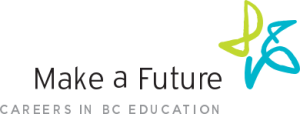
Professional learning in practice
The best professional learning takes place over a period of time, giving teachers the chance to test out new practices and ideas in their classrooms, tweak their practice and measure results. Even better is when extended professional learning experiences are built around an inquiry or question for which teachers are working together to seek answers. (Read our article on two inquiry-based approaches to professional learning for more on this topic.)
A comprehensive professional learning experience
Consider including all or some of the following components in your professional learning offerings:
- face-to-face workshops
- online videos and/or classroom demonstrations
- discussion time or blogs
- in-classroom coaching
- administrative support
- mentorship
Face-to-face workshops
Workshops are especially helpful when kicking off an initiative and may involve external and/or in-school experts who share ideas and insights. However, if you want the workshop to have an impact beyond the immediate event, you will need to offer other elements to support the learning.
Online videos and/or classroom demonstrations
People often learn best when they are shown what something looks like in practice rather than being told about it in a lecture. This can occur through classroom demonstrations – where teachers watch another teacher lead a class – or by video. The important thing is that teachers must have an opportunity to discuss what they see; ask questions and formulate plans to try something new.
Discussion time or blogs
Talking about a new approach or idea can help solidify learning. If discussion time cannot be built into a workshop or presentation, blogs can serve a similar purpose. In addition, blogs can provide an opportunity for educators to ask questions and post comments as they reflect on potential changes to their educational practice.
In-class coaching
In-class coaching allows teachers to discuss their attempts at changing practice in real time. It allows them to ask questions of a colleague or visiting ‘expert’ while engaged in the activity. It also allows the colleagues to watch reactions of students and provide that information to the teacher. This can take the form of peer coaching; working with an administrator; or an ‘expert’.
Administrative support
Professional learning has a greater chance of success when school administrators are actively involved. When administrators ‘dig in and learn alongside’ their teachers student achievement increases.
Mentorship
Mentorship programs are a wonderful way to support professional learning. Whether it’s a one-on-one relationship between mentor and mentee or a peer collaboration model where teachers come together to talk about their educational practice, mentorship offers transformative opportunities for teachers to continue their professional growth. Read more about mentorship.
